The 48th annual Martha’s Vineyard Striped Bass and Bluefish Derby begins tonight, a minute past midnight. The contest is long-awaited, one of the true signs of Vineyard life after the peak of summer.
This year’s month-long contest is the world series of saltwater contests, attracting fishermen from up and down the Atlantic coast. This is the first year since 1984 that the striped bass will be included in the derby that bears its name, along with competitions for bluefish, false albacore and the bonito.
The month-long fishing contest will require more stamina than any other fishing contest in the nation, especially this year. With the return of the striped bass, a fisherman can fish every tide 24 hours a day in search of winning fish. For the surf fisherman, striped bass are best caught at night. Up until this year, fishermen were able to sleep at night. Without the bass, fishermen called it a gentlemen’s derby.
But beginning tonight, the contest will take on a different tone. As the derby progresses, a number of contestants will start looking scruffy, unshaved and tired. Competing in the derby is addicting for some. They fish hard. For the recreational fishermen who make their living as carpenters, plumbers and electricians it means a constant struggle of deciding whether to work or to fish. Many will opt for their avocation.
Derby organizers are expecting as many as 2,000 entrants. Entrance in the contest is still $30 ($15 for seniors and juniors). There is a separate and growing flyrod division; to enter this costs an additional $15. Registration is at all the Island tackle shops, and at a number of other year-round Island stores.
In this year’s souvenir book, given out to every entering fisherman, derby president Ed Jerome explains the decision to return the striped bass to the fall contest:
“The derby committee is proud to have played an influential role in the recovery of the striped bass. When we excluded the striper from our tournament in 1985, it may have only been symbolic, but it sent a message to sportfishing contests and enthusiasts that without a good management plan for all fisheries, this treasured resource would be no more. It was not easy for us at the time, but today’s recovery of the striped bass has made it all worthwhile.
“This year we are pleased to begin a gradual re-entry of the striped bass into our tournament. Although only
fish over 40 inches will quality tor entry, and there will be a limited awards structure, it should add a great deal of excitement to the tournament.”
This is the first year in many years that the contest is without a grand prize boat. Mr. Jerome told the Gazette that a poor economy made it difficult for the usual contributor, Boston Whaler, to make the same donation as in the past.
Part of the success of the derby is in its ability to be sensitive to change, and to adapt. In this year’s souvenir book, fishermen are being urged to catch and release fish that are too small to be contenders in the prize structure. Fishermen are also being urged to respect private property. “Leave the beaches cleaner than you find them and above all, release those fish not meant for the table, carefully, so other fishermen may know the same excitement as you.”
The once popular and highly prized weakfish are not in the derby. The committee decided several years ago to remove the fish from the contest because stocks had been seriously depleted in Vineyard and southern waters.
On Sunday, a team of derby committee members showed up at the foot of Main street in Edgartown to transform what had been the Junior Yacht Club into the weigh-in station and headquarters for the contest. Eddy Amaral and derby president Mr. Jerome took down the yacht club sign and substituted the sign “Derby Headquarters” in white and blue.
Inside Karen Kukolich and Leslie Smith rearranged the furniture and supervised the hanging of boards and signs. Within an hour of effort, the empty hall took on the same appearance it had last October.
The Sunday morning was also a reunion. Joining with the effort was John Crews, 90. “I came to see that everything is in order,” Mr. Crews said. Mr. Crews used to supervise the fillet program which each year provides thousands of pounds of fresh fillets for the Island’s senior citizens.
“I am hoping the fish will come in,” said derby committee member Gordon Ditchfield of Edgartown. “They are hard to come by on the beach.” Mr. Ditchfield said he is optimistic, on the whole, about fishing for the derby. “The water is loaded with bait all over. There are a lot of fish moving around and haven’t yet settled in their usual spots.”
Another derby old-timer who showed up to watch the volunteers at work was Joe Mello, 80, of Edgartown. “The question is whether the fishermen will try to catch the biggest or the most fish,” he said. Mr. Mello said he could recall back in the 1930s when before the use of rod and reel, fishermen used the “heave and haul” method. They would spin a long line around overhead, weighted with a lead lure. Then the lure would be cast. “Then we would haul the line in,” he said.
Martha Roux, a member of the team that will run the weigh-in station, said she is looking forward to this year with the return of the striped bass. “It will make it more exciting. This is back to die-hard fishing. By the second week, some of these fishermen will look like they are growing scales.”
The contest ends at 10 p.m. on Saturday, Oct. 9. A reception and banquet will be held at 4:30 p.m. on Sunday, Oct. 10, at the Harbor View Hotel in Edgartown.

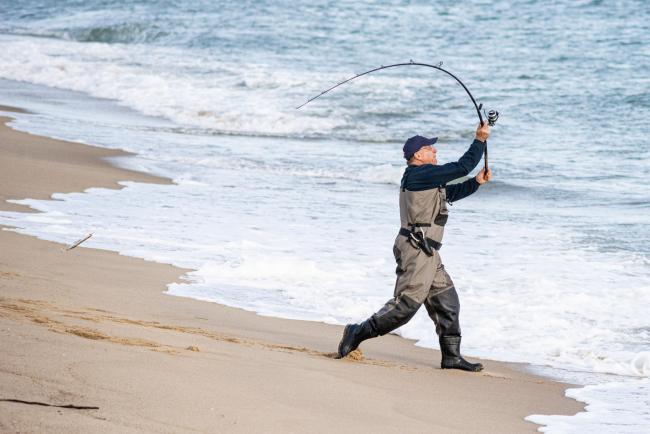
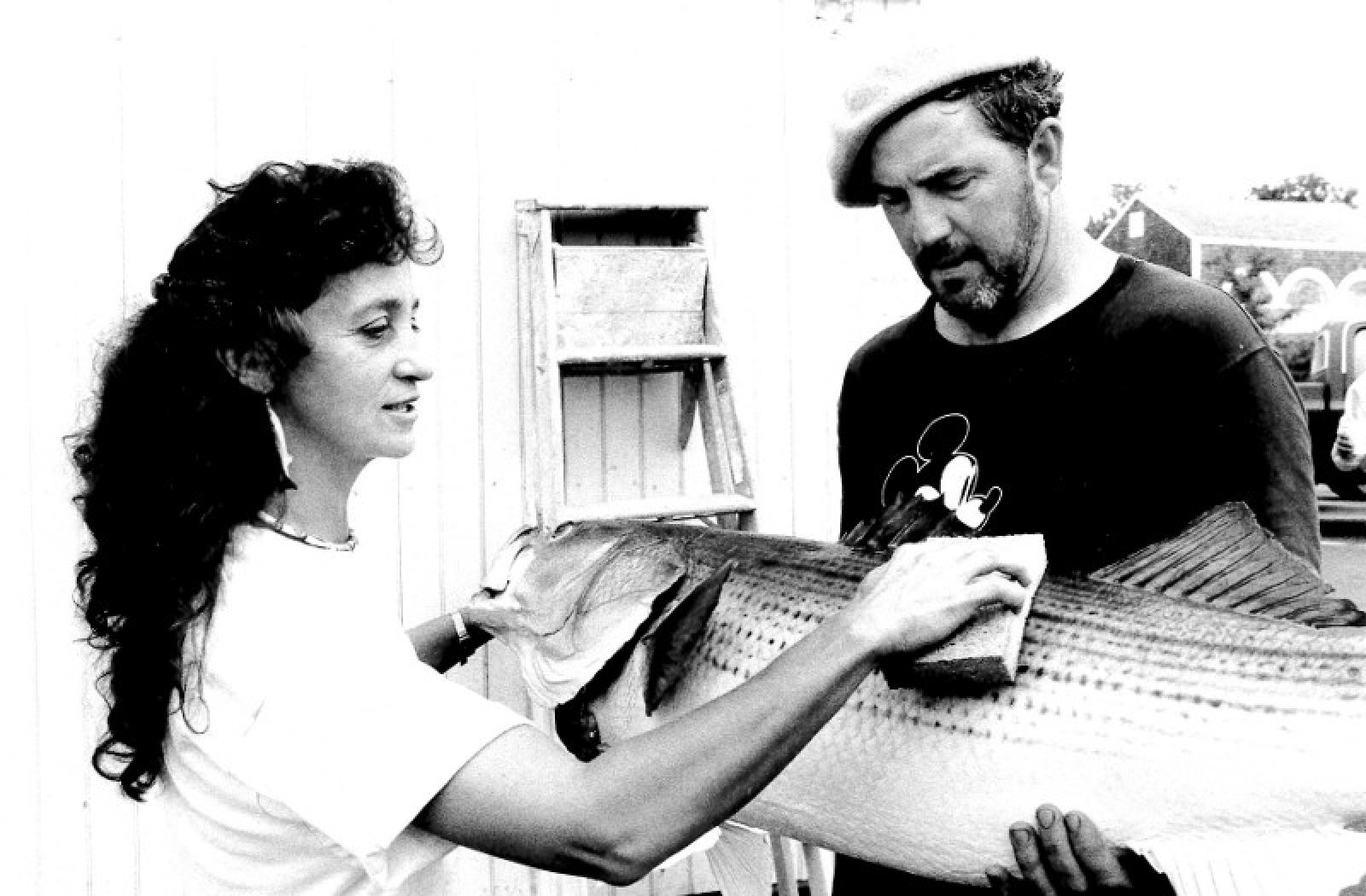




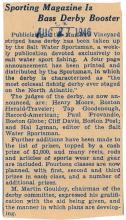
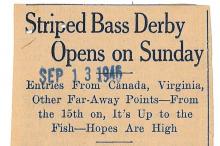
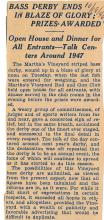
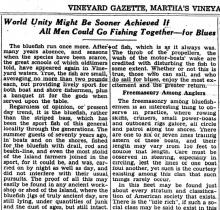
Comments